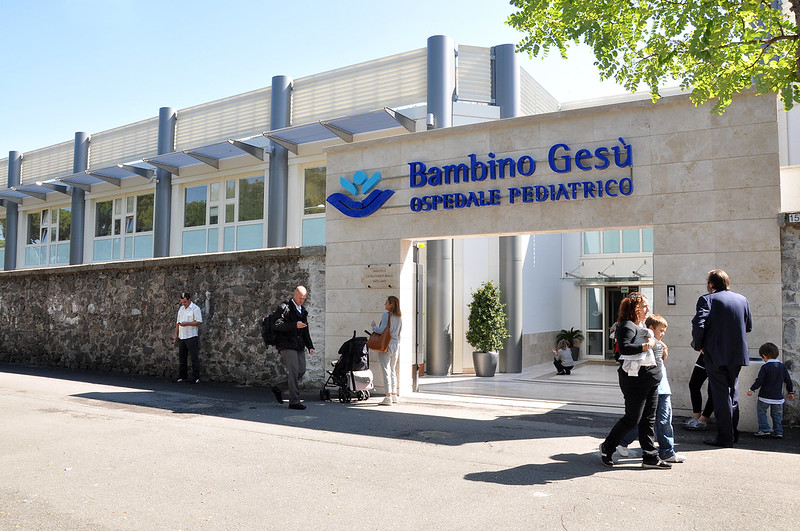A critically-ill baby will be moved from the UK to the Vatican’s paediatric hospital despite a legal battle over her treatment, according to her parents.
Indi Gregory was born in February with mitochondrial disease and has received life-sustaining treatment in the Queen’s Medical Centre in Nottingham since her birth. An High Court judge ruled last month that doctors could remove her from assisted breathing after deciding that this was in her best interests.
Indi’s parents, Claire Staniforth and Dean Gregory, were refused permission to appeal the High Court ruling and denied a hearing by the European Court of Human Rights.
On 30 October, the last day of a legal stay preventing doctors from making arrangements to end Indi’s life, lawyers from the Christian Legal Centre representing the parents published a letter from the Bambino Gesù Hospital in Rome, offering treatment for Indi funded by the Italian government provided her parents could make arrangements for travel.
The hospital’s president Tiziano Onesti outlined a treatment plan and “life-sustaining treatment and palliative care to ensure Indi’s survival and comfort while the treatments take effect”.
Bambino Gesù, one of Europe’s leading paediatric research hospitals, belongs to the Holy See but operates as part of Italy’s National Healthcare System.
The stay was extended to 2 November, when Mr Justice Peel ruled in the High Court that it was in her best interests to die in the UK, refusing her parents permission to move her to Italy. The stay was further extended while they appealed the decision, but this was dismissed without a hearing on 4 November.
On Monday 6 November, after a further extension of the stay, the Italian government announced it had granted Indi citizenship, opening a potential alternative jurisdiction for her case. The Italian prime minister Giorgia Meloni said she would “defend” Indi’s life.
“The Italians have shown us care and loving support and I wish the UK authorities were the same,” said Mr Gregory in response.
The Christian Legal Centre claimed on Monday that doctors in Nottingham had threatened to end Indi’s life support contrary to the terms of the hospital trust’s “Compassionate Care Plan”, which says that parents “should be supported to decide where compassionate care would best be delivered”, with options including the hospital, a hospice or their home.
This dispute returned to the courts and Mr Justice Peel heard arguments on Tuesday 7 November about where treatment should be withdrawn. Indi’s parents want this to be at their home but doctors say that the hospital would be a more appropriate setting for “extubation”.
In a statement published on Tuesday evening, the Bishop of Nottingham Patrick McKinney and Bishop John Sherrington, the lead on life issues for the Bishops’ Conference of England and Wales, said Indi’s situation was “heart-breaking”.
They said that the medical specialists “believe they have done all they can for her” while her parents “want to pursue every possible chance of extending her life, even when they know this carries no guarantee of success”.
“In this regard, both parties are seeking to act in Indi’s best interests,” they said. “Parental love will lead to a desire to take every possible step and we support this.”
They emphasised that the suspension of disproportionate medical treatment did not justify ending basic care “which includes treatments that are required to maintain essential physiological functions as long as the body can benefit from them”.
“We should never act with the deliberate intention to end a human life, including the removal of basic care so that death might be achieved,” they said, arguing instead for “proper palliative care”.
“Alongside spiritual care offered for the one who will soon meet God, the Church views these treatments as necessary to accompany these little patients to a dignified natural death.”
They recognised, however, “the limitations of what can be done, while always acting humanely in the service of the sick person until the time of natural death occurs”.
“We hope and pray that, in the wake of this decision, the family are gradually able to find some peace over the coming days and weeks.”



 Loading ...
Loading ...